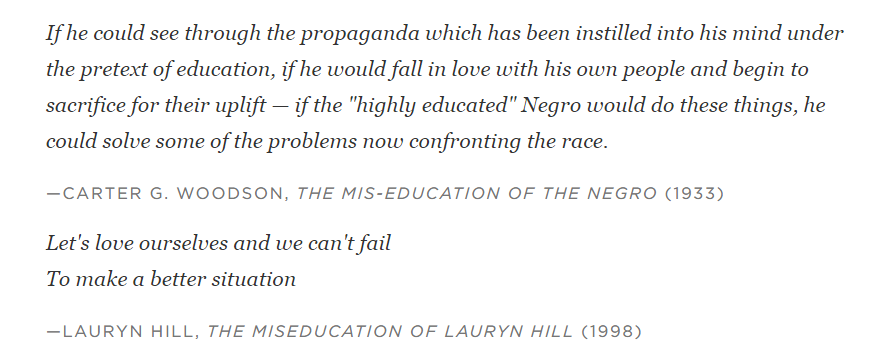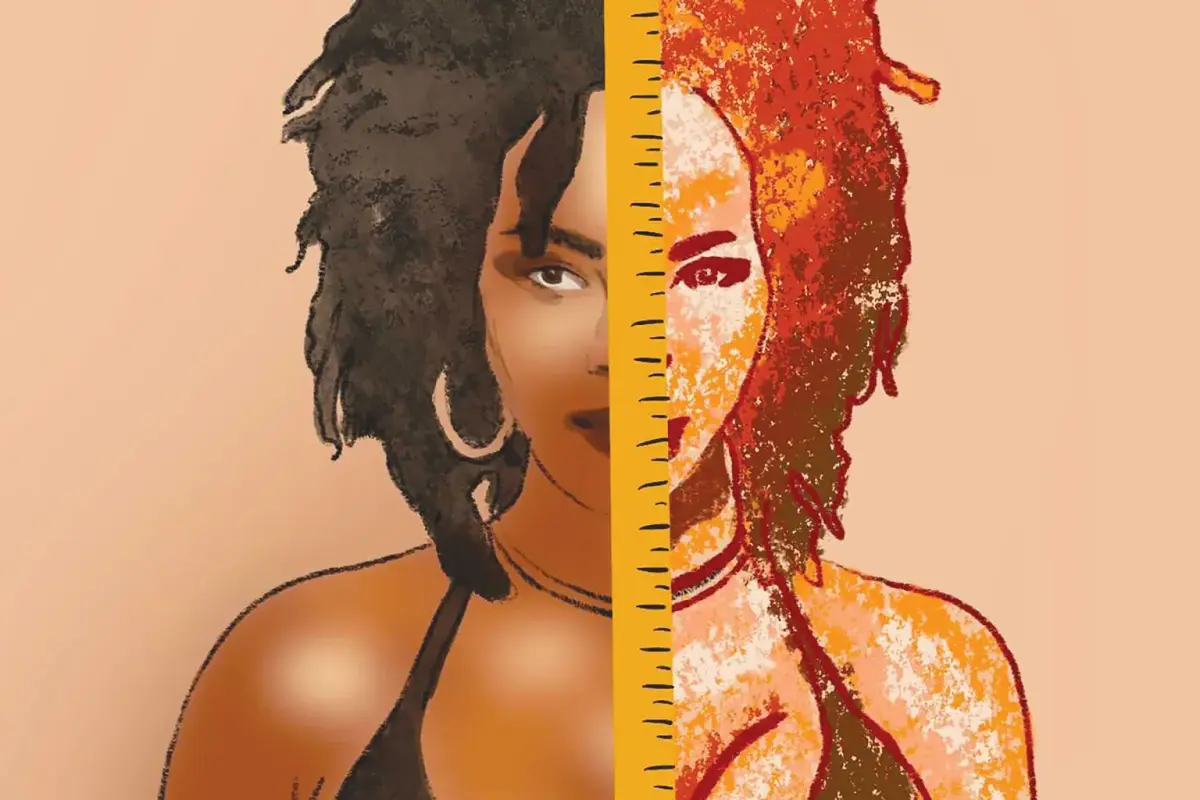Welcome to DU!
The truly grassroots left-of-center political community where regular people, not algorithms, drive the discussions and set the standards.
Join the community:
Create a free account
Support DU (and get rid of ads!):
Become a Star Member
Latest Breaking News
General Discussion
The DU Lounge
All Forums
Issue Forums
Culture Forums
Alliance Forums
Region Forums
Support Forums
Help & Search
Music Appreciation
Related: About this forumLauryn Hill - The Miseducation of Lauryn Hill (Full Album) (Rolling Stones' Greatest Rap Album Ever)
Label: Columbia – 489843 1, Columbia – COL 489843 1
Format:
2 x Vinyl, LP, Album
Country: Europe
Released: 1998
Genre: Hip Hop, Funk / Soul
Style: Conscious, Contemporary R&B










How 'The Miseducation Of Lauryn Hill' Taught Me To Love Blackness
https://www.npr.org/2021/07/07/1013351060/how-the-miseducation-of-lauryn-hill-taught-me-to-love-blackness


So, I'm going through a bit of a nigrescence. You heard of it? It's a thing. My sister, a psychology professor, has diagnosed me as being in "the process of becoming black." William E. Cross developed the theory to account for "the identity transformation that accompanied an individual's participation in the Black power phase (1968-1975) of the Black Social Movement." His model has since been applied to other minorities, like African and Caribbean immigrants to the United States. I'm that newer kind of nigrescent: I'm a Zambian who moved to Maryland in 1989. Growing up, I often worried I wasn't black enough — because my father's white, because I wasn't American.
This is in fact quite American of me. Americans of all races tend to judge blackness this way. Depending on your background, you either are or you aren't: "black," "authentic," "real," or "street" enough. But this relies on genes or geography when, actually, nigrescence is a cultural process: "the metamorphosis of a Eurocentric world view into an Afrocentric one." Blackness, Cross says, "is a state of mind, not an inherited trait," and one that is best "explained by dynamic rather than static paradigms." Being black is always becoming black, a movement that entails contradiction, tumult and as Cross puts it, "a multitude of ideas and ideologies," as well as "considerable effort."
At the start of nigrescence, "the Negro" has been "socialized to take for granted the white perspective on life." They then experience an "encounter" that ignites an intense transformation: "glorification of African heritage, either/or thinking, Blacker-than-thou attitudes, unrealistic expectations concerning the efficacy of Black Power, a tendency to denigrate white people and white culture, and a preoccupation with proving that, as seen by 'others,' one is Black enough." This stage is marked by a range of turbulent emotions, including "rage, euphoria, tenseness, guilt, anger, love, oceanic pride, intense commitment, and lack of fear." In Cross's description, this stage feels like an adolescent "phase," and indeed, it often takes place in college or shortly after.
I'm 40 and this is where I'm at. My nigrescence is manifesting in stereotypical fashion. I want to listen to only black music, read only black literature, watch only black movies, experience only black art, learn only about black history and ideas, write only about blackness. I moved to Harlem, wilfully ignoring the voracious gentrification eating away at the Black Mecca. I see racism everywhere — its forms of exclusion, rejection and destruction, both insidious and violent — and it fills me with rage. It's gotten so that, as Toni Morrison once said, "when I say people, I mean black people."
snip

InfoView thread info, including edit history
TrashPut this thread in your Trash Can (My DU » Trash Can)
BookmarkAdd this thread to your Bookmarks (My DU » Bookmarks)
0 replies, 294 views
ShareGet links to this post and/or share on social media
AlertAlert this post for a rule violation
PowersThere are no powers you can use on this post
EditCannot edit other people's posts
ReplyReply to this post
EditCannot edit other people's posts
Rec (1)
ReplyReply to this post